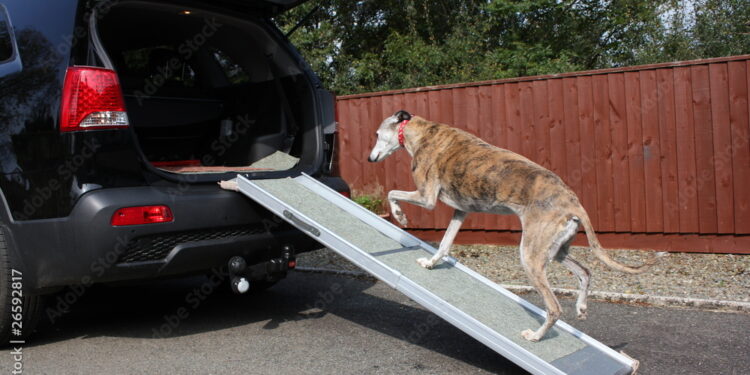Welcome to our comprehensive guide on the top dog breeds most likely to suffer from arthritis. As responsible dog owners, it’s crucial to understand the breeds prone to this debilitating condition.
By identifying the signs and symptoms of arthritis in our beloved dogs and learning effective management strategies, we can provide optimal care and improve their quality of life.
In this guide, we will delve into the most common dog breeds susceptible to arthritis and offer valuable insights on how to effectively manage this condition. Let’s get started!
Understanding Arthritis in Dogs
Arthritis is a degenerative joint disease that causes pain, inflammation, and reduced mobility in dogs. Understanding the nature of arthritis, including its causes, symptoms, and diagnostic methods, is essential for early detection and intervention.
Factors Influencing Arthritis in Dog Breeds
Various factors contribute to the development of arthritis in dogs. Genetic predispositions and breed-specific characteristics play a significant role. Additionally, factors such as size, weight, age, and activity level can influence the likelihood of arthritis development.
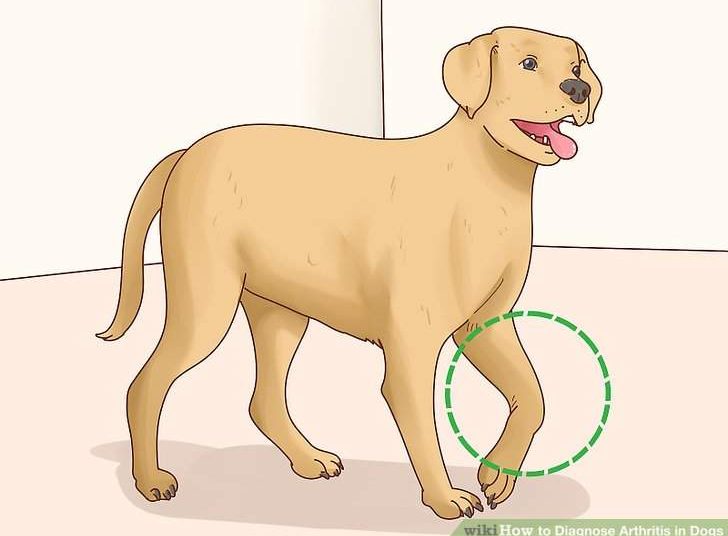
Dog Breeds Prone to Arthritis
1. Labrador Retrievers
Labrador Retrievers are among the dog breeds most likely to suffer from arthritis due to both genetic factors and common joint issues. Labradors are prone to developing conditions such as hip and elbow dysplasia, which can lead to arthritis later in life. The genetic predisposition makes it crucial for Labrador owners to be proactive in managing their joint health.
To effectively manage arthritis in Labradors, a comprehensive approach is needed. Regular exercise is essential to keep their joints mobile and maintain a healthy weight. Low-impact activities like swimming or walking on soft surfaces are ideal for minimising stress on their joints.
Additionally, it’s important to provide a balanced diet that supports joint health, including foods rich in omega-3 fatty acids and glucosamine supplements.

2. German Shepherds
German Shepherds are another breed prone to arthritis, especially in their back legs, with hip and elbow issues being particularly common. Their genetic predisposition to conditions like hip dysplasia increases the risk of developing arthritis.
Regular exercise is crucial for German Shepherds, but it should be tailored to their needs. Moderate-intensity activities like leash walks and controlled play sessions are beneficial for maintaining joint mobility without placing excessive strain on their joints.
It’s also important to provide a balanced diet that includes high-quality protein and joint-supporting supplements like glucosamine and chondroitin. Consulting with a veterinarian can provide valuable insights into specific dietary adjustments for German Shepherds with arthritis.
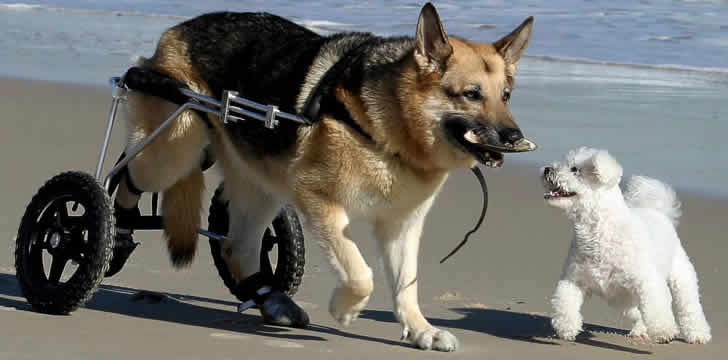
Reading Suggestion: German Shepherd Poodle Mix: A Family Crossbreed Dog
3. Golden Retrievers
Golden Retrievers are known to experience joint problems, including hip and elbow dysplasia, which can lead to arthritis. The breed’s genetics make them susceptible to these conditions, emphasising the need for preventive measures and effective management strategies.
Holistic approaches can play a significant role in managing arthritis symptoms in Golden Retrievers. Alongside veterinary guidance, incorporating supplements like fish oil can help reduce inflammation and support joint health.
Alternative therapies such as acupuncture or physical therapy can provide additional pain relief and improve mobility. Implementing exercise routines that promote joint movement while minimising impact can also help maintain their overall fitness.
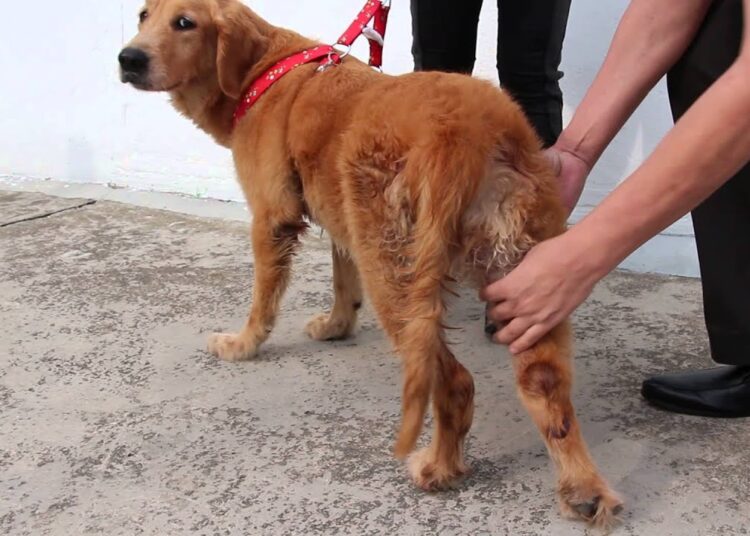
4. Bulldogs
Bulldogs have a unique anatomy that predisposes them to joint problems and increases the likelihood of developing arthritis. Their characteristic body structure, including a heavy head, short limbs, and compact body, can put excessive stress on their joints. Consequently, strategies focused on ensuring their comfort, mobility, and overall well-being are crucial.
Creating an arthritis-friendly home environment for Bulldogs involves providing soft bedding to relieve pressure on their joints. Ramps or stairs should be installed to assist them in navigating elevated surfaces, such as furniture or stairs. Maintaining a warm living space is important to alleviate stiffness, as Bulldogs are more sensitive to cold temperatures.
Additionally, a balanced diet that supports their joint health, combined with regular exercise in consultation with a veterinarian, can help manage their weight and arthritis symptoms effectively.
Reading Suggestion: Micro Bully Dog
5. Dachshunds
Dachshunds, known for their elongated bodies and short legs, are prone to spinal issues that can lead to arthritis. The unique structure of their spine puts them at risk of developing intervertebral disc disease, which may contribute to the onset of arthritis.
For Dachshunds with arthritis, rehabilitation exercises and therapies can play a crucial role in enhancing their mobility and overall quality of life. Physical therapy techniques, such as controlled stretching and strengthening exercises, can help maintain joint flexibility and strengthen supporting muscles.
Finally, underwater treadmill sessions or swimming can provide low-impact exercise to improve their mobility without putting excessive strain on their backs.
Prevention and Management of Arthritis
Maintaining a Healthy Weight
As you can see above, maintaining a healthy weight is crucial for preventing and managing arthritis in dogs. Excess weight puts additional strain on joints, leading to increased pain and inflammation.
To achieve and maintain an ideal weight, it’s important to provide a balanced diet that meets their nutritional needs while avoiding excessive calorie intake. Consult with a veterinarian to determine the appropriate portion sizes and food choices for your dog’s specific needs.
Regular Exercise and Low-Impact Activities
Regular exercise is also essential for joint health, but it’s important to choose activities that minimise stress on their joints. As mentioned previously, low-impact exercises, such as walking, swimming, or gentle play sessions, help maintain joint mobility without causing excessive strain.
Avoid activities that involve jumping or sudden direction changes, as these can exacerbate joint pain. Consult with a veterinarian or a canine rehabilitation specialist to develop a suitable exercise routine tailored to your dog’s breed, age, and overall health.
Environmental Modifications for Comfort and Accessibility
Making simple modifications to your dog’s environment can greatly enhance their comfort and mobility. Provide soft and supportive bedding to alleviate pressure on their joints. Install ramps or stairs to help them access elevated surfaces without strain and consider using nonslip surfaces, both indoors and outdoors, to prevent accidental slips and falls.
Reading Suggestion: What is a Parti Yorkie? and What is Parti Yorkie lifespan?
Alternative Therapies and Treatments
In addition to conventional treatments, alternative therapies can provide valuable support for managing arthritis in dogs. Acupuncture, hydrotherapy, physical therapy and stem cell therapy are examples of alternative treatments that can help alleviate pain, improve joint mobility, and enhance overall well-being.
These therapies can be used alongside medication and other management strategies, under the guidance of a qualified professional. Consult with a qualified veterinarian or a certified rehabilitation specialist to explore suitable options for your dog.
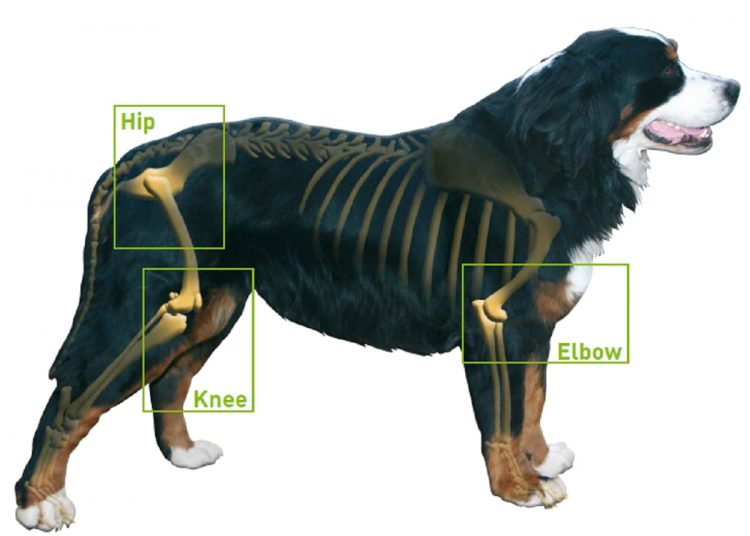
Additional Tips for Caring for Arthritic Dogs
- Use raised food and water bowls to reduce strain on their neck and spine during meals.
- Provide gentle and controlled stretching exercises to improve joint flexibility and range of motion.
- Use heat therapy, such as warm towels or a heating pad, to help soothe sore joints (under veterinary guidance).
- Consider incorporating anti-inflammatory foods into your dog’s diet, such as blueberries, ginger, or turmeric.
- Provide mental stimulation through puzzle toys or treat-dispensing toys to keep their mind engaged and distract them from discomfort.
- Consider using orthopaedic or memory foam support braces for specific joint areas that need extra stability.
- Ensure your dog has access to fresh water at all times to stay hydrated, which is essential for joint health.
- Maintain a consistent routine to minimise stress and promote a calm and comfortable environment for your arthritic dog.
Remember, each dog is unique, so it’s important to tailor your approach to their specific needs and consult with a veterinarian for personalised advice and treatment options.
Regular Veterinary Check-ups and Monitoring
Regular veterinary check-ups are crucial for managing arthritis in dogs. Schedule regular visits to your veterinarian to monitor the progression of arthritis and make any necessary adjustments to the treatment plan. During these check-ups, your veterinarian will assess your dog’s joint health, evaluate their mobility, and recommend any necessary diagnostic tests, such as X-rays or blood work.
Monitoring your arthritic dog at home is also important. Keep an eye out for any changes in their mobility, behaviour, or appetite. Notice if they are experiencing increased stiffness, reluctance to move, or difficulty performing regular activities. These signs may indicate a flare-up of arthritis or the need for adjustments in their treatment plan.
Additionally, observe how your dog responds to the management strategies you have implemented. Are they showing improvement in their mobility and comfort? Are there any signs of side effects from medications? Open communication with your veterinarian and providing them with regular updates on your dog’s progress will help ensure the best care possible.
Conclusion
While we’ve discussed a variety of strategies for managing arthritis in dogs, we understand that owners may be looking for more comprehensive information and cutting-edge treatment options. That’s why we recommend the free e-book, Healing Your Dog’s Arthritis, which provides in-depth insights into Stem Cell Therapy – an innovative approach for treating arthritis in dogs. With this knowledge, you’ll have an additional tool in your arsenal to provide the best possible care for your arthritic furry companion.
In conclusion, understanding the dog breeds most likely to suffer from arthritis empowers us to provide the best possible care for our furry companions. By implementing prevention strategies, such as weight management, exercise routines, and balanced nutrition, we can minimise the risk and severity of arthritis.
Additionally, creating a supportive home environment and exploring alternative therapies can significantly enhance their quality of life. Remember, early detection, proper management, and a compassionate approach are the keys to ensuring our arthritic dogs live comfortable and fulfilling lives.


